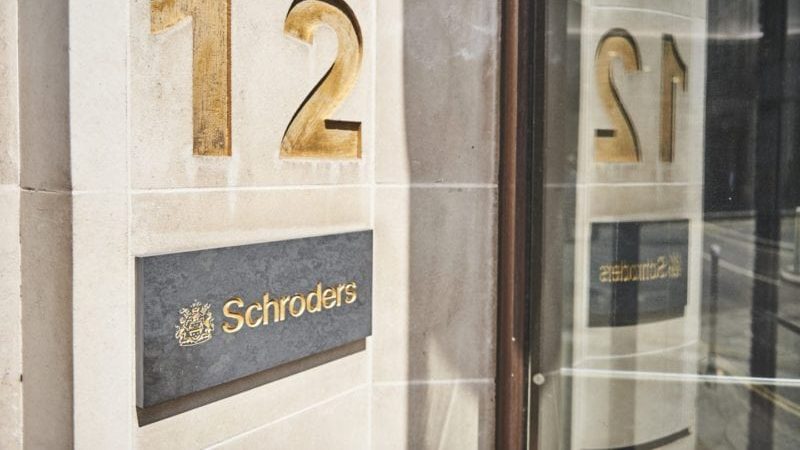Hedge funds are shorting Jupiter and Schroders as fears of a no deal Brexit, global trade tensions and the continuing struggle of the asset management industry have made them prime candidates for short selling.
Point 72, run by American hedge fund investor Steven Cohen, held a 1.23% short position in Jupiter on 31 July and a 0.51% position in Schroders on 25 July, according to data from the Financial Conduct Authority (FCA).
In addition, Odey Asset Management opened a 1.22% short position in Jupiter on 3 July and Marshall Wace initiated a 0.81% position on 1 August, while Blackrock and AQR held 1.19% and 0.79% short positions on 17 and 31 July, respectively.
Asset manager Citadel Europe had a 0.73% short position in Schroders on 1 August.
The data comes from the FCA’s public list of investors that hold net short positions which is regularly updated as part of its short selling regulation (SSR) regime introduced in 2012.
According to Bloomberg data, 6.6% of Jupiter’s and 1.24% of Schroders’ stock is out on loan.
The positions, first identified by the Financial Times, come at a time of escalated fears of a no-deal Brexit and global trade tensions, and when the UK’s asset management industry finds itself in a crisis over the Woodford fund suspension.
In short sellers’ sights for some time
AJ Bell head of active portfolios Ryan Hughes said asset managers have been in the sights of hedge funds for some time now as pressure grows on sustaining growth.
Hughes said: “Increased competition from passive investors, the risk of contagion from the Woodford problems and the potential for increased regulatory scrutiny all create an environment where short sellers think the share prices of asset managers could come under pressure.”
In the case of Jupiter, a senior management shake-up and European equities manager Alexander Darwall stepping back from managing two open-ended funds could also have contributed to the case for shorting.
“Jupiter has been going through a period of change with a new management team and assets have been hit through a combination of outflows from European clients and the surprise news of Alexander Darwall forthcoming departure, while Schroders has also seen outflows both in 2018 and the first half of 2019,” he said.
Managers hit by poor momentum
Seven Investment Management senior portfolio manager Peter Sleep said there are four main reasons why UK asset managers are being shorted: the uncertain outlook for Brexit; their profits are sensitive to market direction; flows have been largely negative; and ramped-up fee pressure from passives.
Another reason, Sleep added, is some hedge funds, such as AQR, run quant momentum models which have benefitted from the poor momentum UK asset managers have experienced of late.
Turnaround stocks
Chelsea Financial Services managing director Darius McDermott said he can understand the short positions given the Trump tweet-induced volatility, but the asset management industry is starting to see inflows.
He said given the change in management at Jupiter, it is looking like a turnaround stock.
“If you were a fund manager, you would describe that as a special situation. They obviously have the challenge over the European equity franchise, which is still unclear because Alexander Darwall has not yet resigned. But if and when he goes, you can’t help imagine there is going to be some more outflows from Europe.”
McDermott said Schroders’ position as a large globally-diversified asset manager should protect it from some of the macro and structural headwinds, including the risk of contagion from Woodford.
“It is a massive global asset manager. Should a liquidity event at a boutique like Woodford affect Schroders? I don’t tend to agree.”
Jupiter declined to comment while Schroders and Point 72 had not responded to requests for comment by the time of publication.











